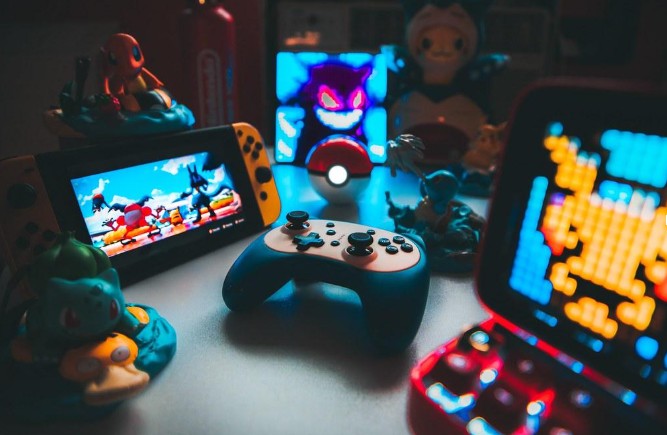
 Since its infancy, the world of gaming has seen change on an almost yearly basis. From the early days of retro consoles to the latest next-generation consoles, technology has advanced gaming to a point beyond our expectations, which is leaving developers and manufacturers struggling to keep up with the next development.
Since its infancy, the world of gaming has seen change on an almost yearly basis. From the early days of retro consoles to the latest next-generation consoles, technology has advanced gaming to a point beyond our expectations, which is leaving developers and manufacturers struggling to keep up with the next development.
Take crypto, for instance. Since the first blockchain was invented back in 2009, the world of crypto has gradually started to snowball. Over the last few years, in particular, it has accelerated hugely as it has started to integrate itself into numerous different industries. In this article, we are going to focus on one industry in particular: the gaming industry. What exactly is crypto gaming? How does it differ from normal gaming? And will gaming developers ever be able to get fully on board with this technology?
What is Crypto Gaming?
First things first, there are two different forms of crypto gaming. One is a kind of hybrid, where cryptocurrency has been infused into traditional games – and gaming sectors – that we know and love. The most prescient case like this is crypto casinos, which allow users to play games using crypto tokens BTC to SOL. Since their inception, the most popular Bitcoin casino sites have been hugely successful in merging two worlds together, opening the door to lovers of crypto who want to play games they know with the tokens that they want. However, as with casinos, there are games that are entirely new and blockchain-based.
 The difference with these games is the decentralization – blockchain is decentralized, which means the game belongs to everyone, rather than one separate centralized entity – and the in-game purchases. For example, if you look at Roblox, there’s in-game currency within the game that players can trade with each other. By playing the game, they are earning more cryptocurrency while also enjoying everything that the game has to offer. When it comes to this currency, blockchain underpins all transactions, storing them on the central public ledger for full transparency. When you purchase an asset in the game, a token is assigned to it, and the blockchain keeps track of how many tokens there are and who they are assigned to. In addition, many crypto games give players the chance to win NFTs – digital tokens that cannot be replicated – such as avatars, digital fashion pieces, or artworks.
The difference with these games is the decentralization – blockchain is decentralized, which means the game belongs to everyone, rather than one separate centralized entity – and the in-game purchases. For example, if you look at Roblox, there’s in-game currency within the game that players can trade with each other. By playing the game, they are earning more cryptocurrency while also enjoying everything that the game has to offer. When it comes to this currency, blockchain underpins all transactions, storing them on the central public ledger for full transparency. When you purchase an asset in the game, a token is assigned to it, and the blockchain keeps track of how many tokens there are and who they are assigned to. In addition, many crypto games give players the chance to win NFTs – digital tokens that cannot be replicated – such as avatars, digital fashion pieces, or artworks.
Play To Earn
To delve a little deeper, this is known as a play-to-earn model. As the name suggests, this type of model incentivizes the player to play the game in order to earn rewards, which – as we mentioned – are usually in the form of crypto or NFTs. Imagine you’re playing FIFA, for example. The game runs exactly in the way you recognize, but when you win a match, you’re rewarded with tokens that can be spent both in-game and outside of the game. It’s an innovative idea that, if implemented fully across the gaming-verse, could be an – if you’ll excuse the pun – absolute game-changer!
Will Gaming Developers Get on Board?
So, while crypto gaming is not all too different from regular gaming in some ways, it is hugely different in its concept.

And it’s quickly gaining in popularity, too, especially as more and more people start to understand the world of crypto and get their heads around blockchain as a platform. A lot of players also appreciate and like the security and privacy that decentralization promotes and like to support this cause in whichever way they can – even if this means changing their habits.
For gaming developers who want to get on board, it also represents a pretty smart move, as the nature of crypto games means that they can incentivize players to spend more time on the games and thus bring in more revenue. Whether this will happen on a big scale, however, remains to be seen. Yes, crypto casinos and games like crypto poker are loved, but the broad appeal for the ‘every player’ is not quite set in stone just yet. For this reason, it could take a few more years before the big game developers start to jump on board.











